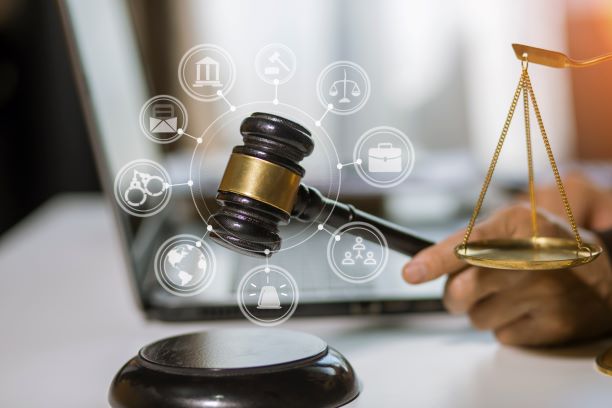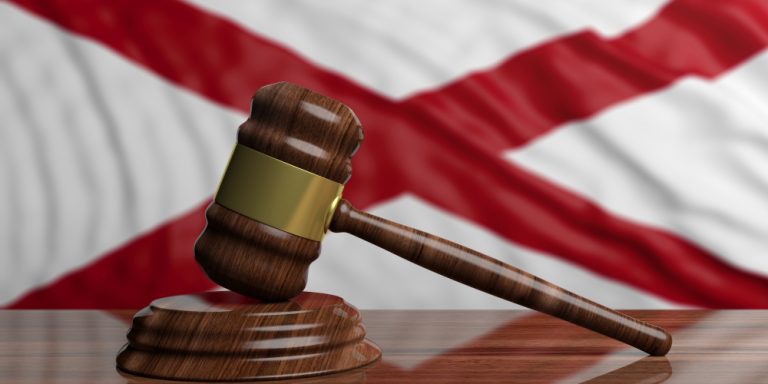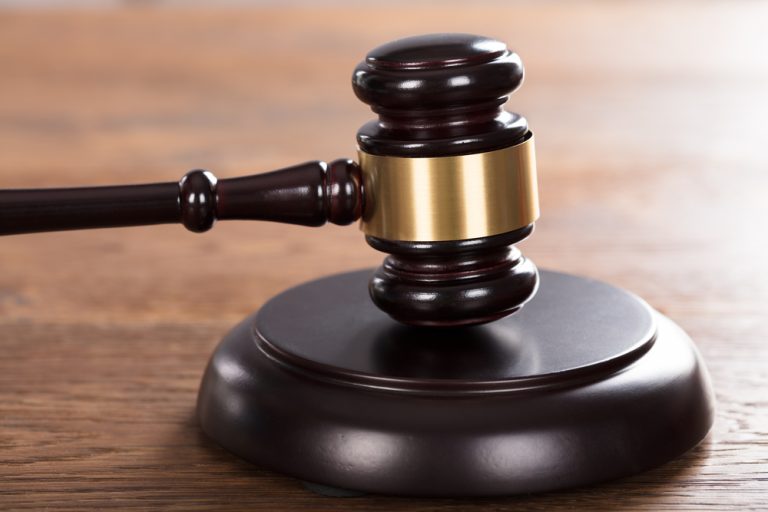Governor DeSantis Signs New COVID-19 Related Laws that Have Immediate Effect in Florida
Governor DeSantis Signs New COVID-19 Related Laws that Have Immediate Effect in Florida
As all are keenly aware, the COVID-19 pandemic and its effects have “had far-reaching effects,” and it “has changed everything from the way that friends and families interact to the way that businesses and schools operate to the way that courts hear and decide cases.”[1] Given the rapidity with which the legislative landscape (within Florida and nationally) has changed and continues to change, it is imperative for employers and government entities to remain cognizant as the nation continues to grapple with the ongoing pandemic. This article sheds light on the most recent legislative updates affecting Florida.
In September 2021, President Biden issued an executive order broadly requiring federal contractors and their employees be vaccinated against COVID-19. This order is now the subject of legal challenges, with the State of Florida serving as the plaintiff in one of these lawsuits.[2] On November 5, 2021, the Occupational Safety and Health Administration (“OSHA”) issued an Emergency Temporary Standard (“ETS”) related to mandatory COVID-19 vaccination that has also been the subject of multiple legal challenges; as a result, the ETS has been judicially stayed,[3] and OSHA itself has suspended enforcement of the ETS.[4]
Amidst this activity by the federal government, on November 18, 2021, Governor DeSantis signed into law four bills related to the COVID-19 pandemic that were passed through a special session of the Florida Legislature the day before.[5] The four bills, House Bills 1, 3, 5, and 7, all took immediate effect, and affect public and private employers, as well as school districts and educational institutions across Florida. This article clarifies the effects of these new laws and offers key takeaways for employers and school districts.
Key Takeaways
A key takeaway from House Bill 1 (“HB 1”) is that private employers cannot mandate COVID-19 vaccination for their employees without providing at least five statutorily defined exemption options. These exemption options must comport with forms and rules that will be promulgated by the Department of Health, so private employers should remain vigilant in the coming weeks and months to be sure they are in compliance. Failure to do so risks state investigations and steep fines.
The key takeaway for public employers from HB 1 is arguably simpler but also blunter: no COVID-19 vaccination requirement as a condition of employment is allowed whatsoever. Public employers also risk fines for noncompliance, although not as high.
For school districts, HB 1’s message is similarly clear: no mask or vaccination requirements for students, and no quarantining or excluding of students solely due to COVID-19 exposure. School district action to the contrary risks lawsuits by an aggrieved student and/or their parents. School district employees may also not be prevented from returning to work simply because they were exposed to COVID-19.
While employers and school districts may seem daunted by HB 1’s new measures, they can take some comfort in knowing these provisions all currently sunset in June 2023. Further, these new laws are generally aligned with the trajectory Florida has pursued during the pandemic of prohibiting onerous vaccination and quarantining requirements by both public and private employers. Most importantly, these new laws provide some much-needed guidance on what responsibilities employers do and do not have regarding COVID-19 vaccination, as well as what kinds of rules and regulations school districts may or may not impose.
As for House Bill 3 (“HB 3”), the takeaway for public employers is to be careful about what they do and do not disclose in relation to a chapter 119 public records request. HB 3 shields any from disclosure information related to a complaint brought against a private employer under HB 1 during the pendency of any investigation, and protects this information from disclosure post-investigation if producing the information would jeopardize another investigation or reveal personal information about the employee complainant.
For House Bill 5 (“HB 5”), while the immediate impact is arguably minimal, it does signal Florida’s intent to explore potentially bringing all occupational safety and health administration ‘in-house,’ and to possibly remove Florida from oversight by OSHA. Given that Florida (along with multiple other states and entities) immediately challenged the recent ETS promulgated by OSHA related to COVID-19 vaccination, this move by the Florida Legislature to further decouple the state from federal oversight is not entirely surprising.
As for House Bill 7 (“HB 7”), while this does not impose new duties on employers, it does limit the authority of the State Health Officer by removing his or her ability to order individuals receive vaccinations during a public health emergency.
One final takeaway is that because Florida’s new laws conflict with recent federal rules concerning COVID-19 (e.g., OSHA’s ETS, President Biden’s executive order related to federal contractors), it is likely most, if not all, of Florida’s new laws will be challenged. Because it is unknown whether the federal government’s rules will survive their own legal challenges, at this time it is difficult to forecast the degree to which Florida’s laws may or not be preempted.
A more in-depth explanation of the new laws follows.
House Bill 1
HB 1 is arguably the farthest-reaching of the four bills. It creates three new laws, and supplements other sections of Florida law.
- Section 381.00317
The first new statute created by HB 1 is section 381.00317. This statute broadly prohibits private employers from mandating their employees (whether they be full-time, part-time, or contract employees) receive the COVID-19 vaccination “without providing individual exemptions that allow an employee to opt out of such requirement on the basis of medical reasons, including, but not limited to, pregnancy or anticipated pregnancy; religious reasons; COVID-19 immunity; periodic testing; and the use of employer-provided personal protective equipment.”[6] The law details how employees may go about claiming such exemptions.[7]
HB 1 requires the Department of Health to “adopt rules specifying circumstances that are considered an anticipated pregnancy,” for purposes of claiming an exemption under the provision dealing with medical opt-outs. Employees seeking to claim a medical exemption must present their employers with an exemption statement signed by a physician, physician assistant, or advanced practice registered nurse stating that vaccination is not in the best medical interest of the employee. Similarly, the Department of Health is also required to adopt a standard for demonstrating competent medical evidence for claiming exemptions for COVID-19 immunity.
For those who wish to claim an exemption for periodic COVID-19 testing, employees must present their employer with an exemption statement noting the employee will agree to comply with regular COVID-19 testing; however, this testing must be “at no cost to the employee.” To claim an exemption based on employer-provided personal protective equipment, employees must present an exemption statement stating the employee agrees to comply with any reasonable written requirement to use personal protective equipment provided by their employer when in the presence of other employees or other persons. For religious exemptions, employees must present an exemption statement indicating the employee is declining vaccination due to a “sincerely held religious belief.”
Private employers must allow any employee who presents a valid exemption statement to opt out of any COVID-19 vaccination mandate.[8] Should an employee feel an exemption has not been offered or that their exemption has been improperly denied, they can file a complaint with the Department of Legal Affairs, which is authorized to open an investigation into the employer. If a private employer fails to comply with the above and terminates an employee based on a COVID-19 vaccination mandate, they risk steep fines under the new law. Following an investigation by the Department of Legal Affairs, if the employer is found in violation, the Attorney General “must impose an administrative fine” of $10,000 per violation for an employer with fewer than 100 employees, and $50,000 per violation for employers with 100 or more employees.[9] Employers may save themselves from a fine, however, if they reinstate a terminated employee—with back pay to the date that the complaint was received—prior to issuance of a final order. Employees terminated due to noncompliance with an employer’s COVID-19 vaccination mandate are eligible for reemployment assistance. Finally, this section prevents private employers from imposing policies prohibiting their employee from choosing to receive a COVID-19 vaccination. Section 381.00317 expires on June 1, 2023.
- Section 381.00319
The second new statute created by HB 1, section 381.00319, applies to students and schools, by prohibiting educational institutions and elected or appointed local officials from imposing COVID-19 vaccination mandates for students.[10] If an educational institution imposes such a vaccination requirement, this section allows a student’s parents, emancipated minor students, or students 18 or older to bring a declaratory judgment action and to also seek injunctive relief against that institution. Should the student or parent prevail, they are entitled to attorneys’ fees and costs. Section 381.00319 also sunsets on June 1, 2023.
- Section 112.0441
The final statute created by HB 1, section 112.0441, prohibits public employers, i.e., “an educational institution or a governmental entity,” from imposing COVID-19 vaccination mandates for any full-time, part-time, or contract employee; it also nullifies any existing ordinance, rule, or policy imposing such a mandate.[11] If an educational institution or government entity imposes a COVID-19 vaccination mandate, they risk a fine of up to $5,000 per violation. Public employees terminated for noncompliance with a COVID-19 vaccination mandate are eligible for reemployment assistance. Like the other new provisions created by HB 1, section 112.0441 also expires on June 1, 2023.
Other Features of House Bill 1
Beyond creating new laws, HB 1 also created a $5,000,000 fund for use by the Department of Legal Affairs to investigate complaints and to take legal action to stop the enforcement of COVID-19 vaccination mandates imposed by the federal government.
HB 1 also supplemented existing law, by prohibiting district school boards, their superintendents, elected or appointed local officials, or “any district school board employee” from requiring students to wear “a face mask, a face shield, or any other facial covering that fits over the mouth or nose”; the “sole discretion” over such a decision is left to the student’s parents.[12] School districts also cannot stop a student from attending school or school-sponsored activities, from being on school property, or subject a student to restrictions or disparate treatment based on COVID-19 exposure, so long as the student remains asymptomatic and has not received a positive COVID-19 test.[13] Similar to section 381.00319, subsection 1002.20(3)(n) now allows a party aggrieved by this section to seek declaratory judgment and injunctive relief against a school district that violates this section and to recover attorney’s fees and costs.
Finally, this new subsection blocks school districts from preventing school district employees returning to work or subjecting employees to restrictions or disparate treatment based on exposure to COVID-19, so long as the employee remains asymptomatic and has not received a positive test for COVID-19. Subsection 1002.20(3)(n) also expires on June 1, 2023.
House Bill 3
HB 3 also creates a new statute, section 381.00318, and is linked to HB 1. This section adds an exemption to Florida’s “sunshine laws” regarding public records requests by making an employee complaint regarding a private employer’s violation of section 381.00317, along with all information related to the investigation of such a complaint, confidential until any investigation into the alleged violation is completed.[14] This information would remain confidential even after the investigation ends if disclosure would jeopardize the integrity of another active investigation, or reveal an employee’s medical information or information about their religious beliefs. Section 381.00318 will stand repealed on October 2, 2023.
House Bill 5
HB 5 does not create any new law; however, it does call for the governor’s office to develop a proposal for “the Florida Occupational Safety and Health Plan” in order to assert state jurisdiction over government and private employees. HB 5 states it is in Florida’s best interest to explore developing its own state plan to enhance occupational safety and health interests throughout the state, and that by January 17, 2022, the governor’s office must submit a status report to the legislature. To aid with the creation of this plan, $1,000,000 has been appropriated from the state’s general revenue fund.
House Bill 7
HB 7 amends section 381.00315, Florida Statutes, by removing the authority of the State Health Officer to order individuals be vaccinated during a public health emergency.[15] Unlike the other new laws, HB 7’s amendment to section 381.00315 does not contain any sunset provision; despite this, any impact is likely minimal, as the legislative analysis of HB 7, performed by the Health and Human Services Committee, notes that this authority has not been used since its creation in 2002.[16]
Final Conclusions
As of today, HB 1, 3, 5, and 7 are now the law of the land in Florida. Private employers must offer employees COVID-19 vaccination opt-outs, while public employers cannot require their employees receive the COIVD-19 vaccinations at all. Nor can school districts require students be vaccinated or wear face masks. Schools must also not bar students and/or employees from attending school or working solely due to COVID-19 exposure. Noncompliance with these new laws risks incurring harsh financial penalties and lawsuits.
However, it must be noted that some or all of these laws may (and likely will) be challenged, given that they conflict to some degree with actions taken by the federal government related to COVID-19. Given that litigation remains ongoing (both within Florida and nationally) as to actions taken by both the federal and Florida government, it is unlikely that we have seen the last word on COVID-19 and vaccination policies employers must abide by. RumbergerKirk will endeavor to remain current with its advice on how to best comply with relevant laws and rules, and employers and school authorities concerned about falling afoul of any legislative changes should regularly check RumbergerKirk’s Insights page for new updates.[17]
[1] Swain v. Junior, 961 F.3d 1276, 1280 (11th Cir. 2020).
[2] See State of Florida v. Bill Nelson, et al., No. 8:21-cv-2524, ECF No. 1 (M.D. Fla. Oct. 28, 2021).
[3] BST Holdings, LLC v. Occupational Safety & Health Admin., — F.4th —-, No. 21-60845, 2021 WL 5279381, at *1 (5th Cir. Nov. 12, 2021).
[4] United States Dep’t of Lab., Emergency Temporary Standard COVID-19 Vaccination and Testing ETS, Occupational Safety & Health Admin., https://www.osha.gov/coronavirus/ets2 (last visited Nov. 18, 2021).
[5] See H.B. 1-B, 3-B, 5-B, 7-B, 2021B Spec. Sess. (Fla. 2021).
[6] § 381.00317(1), Fla. Stat.
[7] Id. at (1)(a)–(e).
[8] Id. at § 381.00317(2).
[9] Id. at § 381.00317(4)(a)1.–2.
[10] § 381.00319(2), Fla. Stat.
[11] § 112.0441(2)(a), Fla. Stat.
[12] § 1002.20(3)(n)1.a., Fla. Stat.
[13] Id. at (3)(n)1.b.
[14] § 381.00318(1), Fla. Stat.
[15] § 381.00315(2)(d)4., Fla. Stat.
[16] Health & Human Servs. Comm., H. of Reps. Staff Analysis, H.B. 7-B, 2021B Spec. Sess. (Fla. 2021).
[17] RumbergerKirk, Insights,https://www.rumberger.com/insights/.








